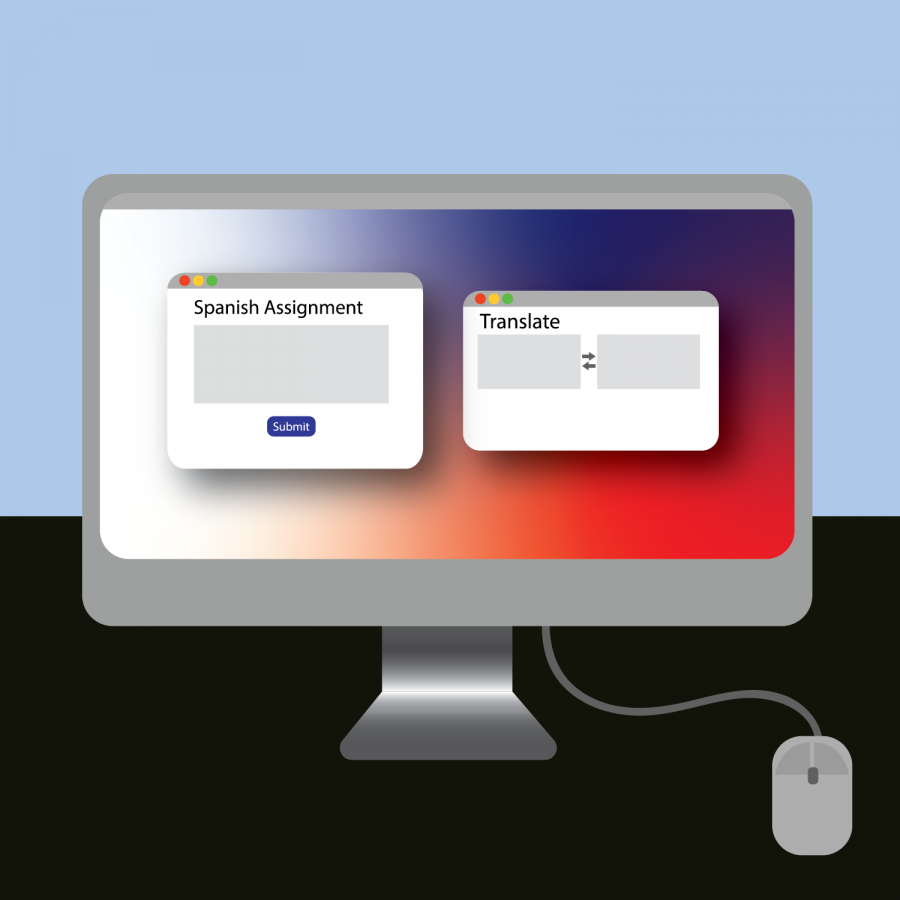Online classes aren’t effective
November 24, 2018
At the University, we’re offered a wide variety of foreign language classes. When looking into taking a Spanish course, I was appalled to find out the first level was an online class that meets every Friday at 7 p.m. I also noticed we have an even larger pool of online classes ranging from math to social sciences. Students seem to love these classes. What could be wrong with them?
Since the birth of the internet, we have been able to learn and gain knowledge with a touch of a button, yet online classes are rarely a holistic tool when it comes to learning a language.
Online programs should be coupled with in-person teaching. Research suggests using blended methods allows students to do just as well as those taught in a traditional classroom.
Software like Rosetta Stone gives you insight into a language in terms of vocabulary. However, this program doesn’t teach you how or when to use it when speaking to a native speaker. The point of learning a language is to be able to visit different places around the world and communicate with people. Online classes and programs don’t grant you that opportunity.
Foreign language needs to be spoken every day to fully learn the language. We owe it to students to get the most out of a class, and teaching language online won’t do that.
Get The Daily Illini in your inbox!
Online language classes don’t benefit lower-performing students. These students are the ones who are being left behind and, without the presence of a classroom teacher, will continue to be left behind. Online classes, in general, take a lot of motivation, organization and regulation. A student who has none of these skills may then turn to Google to complete assignments and tests. The only thing they are really learning is how to use Google.
Other online classes fall into this category as well. For example, three credit hour courses — such as biology — are offered online. These core classes don’t provide the knowledge students need to have to go into more advanced classes. Handling material at that magnitude increases a students likelihood to cheat. Online classes have a high pass rate, which makes students and the University happy. But passing doesn’t measure the amount of information retained.
Some schools implement online learning as a means to look better on paper. For example, in many high schools and elementary schools, we have begun to see an increase in online classes. Why? To boost grades and graduation rates. Doing this ensures schools are more competitive with other schools within their district — but doing this harms students in the long run.
Students who take online classes are more likely to drop out than those who don’t. In a study done at The Brookings Institution, the semester after taking an online course, students are about 9 percent less likely to remain enrolled. Although, to many, 9 percent doesn’t seem alarming. But why risk it when there is a simple fix? Creating courses using both methods is more beneficial in the long run. The University has many courses like this, and in those classes, I often feel as though I’ve learned a lot of material.
Just think, “Am I really going to learn anything in this online class?” If the answer is no, which it will be, then don’t waste your parents’ money. Think twice when you’re registering for classes.
Chantelle is a sophomore in Media.







